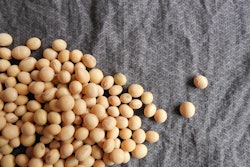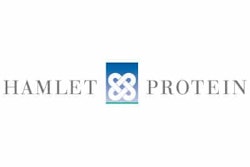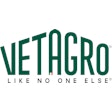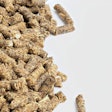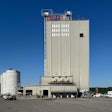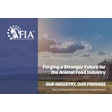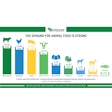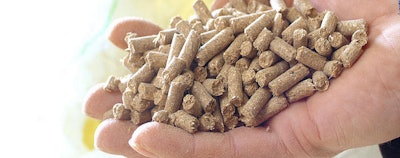
A wet, humid fall not only can delay harvest, it can also set the stage for mold growth and increased risk of mycotoxins. The 2019 harvest was a wet one in many regions of the U.S. Even if the season ended on a dry note in your area, the feedstuffs you buy or raise might have been exposed to molds in the field, during harvest and even in storage, making the presence of mycotoxins a possibility.
Mycotoxins can cause reduced milk production, digestive disorders, intestinal irritation, diarrhea, poor feed intake and, in some cases, suppressed immunity. The mycotoxins most likely to impact dairy cattle are: aflatoxins, deoxynivalenol (also called DON or vomitoxin), fumonisins, zearalenone (also called ZEN) and T-2 toxin.
“DON is often used as a screen for mycotoxin-contaminated feedstuffs, since its presence indicates the crop’s growing, harvesting and/or storage conditions were conducive to mold growth and subsequent mycotoxin formation,” says Dennis Nuzback, D.V.M., Ph.D. and Research Technical Manager, Phibro Animal Health Corporation. “However, the majority of feedstuffs usually contain multiple mycotoxins simultaneously, so it’s important to know which ones are present in order to manage the problem.”
The presence of mold may cause dry matter losses, lower nutritional values and potentially cause mycotoxins to form. Late-harvested grain, along with grain that has been dried or stored improperly, may also contain mold and mycotoxins.
Nuzback advises producers to be vigilant and to take the following steps to reduce the incidence of mycotoxicosis in their dairy herds.
If you suspect mycotoxins in your silage:
- Monitor herd performance. Specific disease symptoms are different in different herds and are dependent on the presence of opportunistic organisms and other stressors. Loose stools are one abnormality to watch out for, along with lower milk production or decreased butterfat. Look for the presence of moldy feed and mycotoxins with any poorly performing herd.
- Examine your feed. The visual presence of mold indicates a breakdown in harvesting or storage management practices. However, appearances can be deceiving, as two-thirds of molds do not produce mycotoxins, and grain that contains mycotoxins does not always display visible signs of mold contamination.
- Screen for mycotoxins. Suspect silages or grains can be tested for the presence of mold or mycotoxins. Laboratories will test samples for mold counts and species identification as well as measure the concentrations of DON and other mycotoxins through chemical analyses.
- Consider supportive therapies and mitigation. Because some mycotoxins are degraded in the rumen, it’s important to support a robust rumen fermentation to modify mycotoxins — and thus, lessen the degree of the toxicity.
“Buffers, effective fiber and direct-fed microbials can help restore rumen function in dairy cows,” Nuzback advises. “Since many nutrients interact with mycotoxins and modify toxicity, optimal levels of nutrients, including protein, energy and antioxidants, can prove helpful in reducing the adverse effects of mycotoxins. Adsorbents and immunomodulators are the first line of defense against mycotoxins in feed.”
AB20® nutritional specialty product is a bentonite adsorbent, containing hydrated sodium and calcium aluminosilicates that reduce caking and flowability issues by binding moisture that is present in feed. Lower moisture in grain reduces the potential for mold growth — and lowering mold growth in feed improves its quality. By feeding AB20 daily, replacing the contaminated feedstuffs with mycotoxin-free ingredients and monitoring for additional symptoms, dairy producers can help their herds, and their milk quality, get back on track.
To learn more about the effects of mycotoxins on dairy cattle, or for feeding rates or other details on AB20, contact your Phibro representative at 800-677-4623 or visit pahc.com.


